Related Research Articles
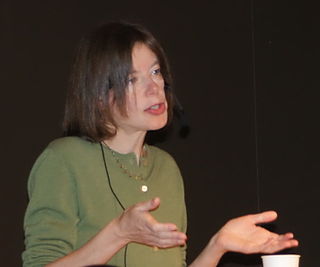
Susan Charlotte Faludi is an American feminist, journalist, and author. She won a Pulitzer Prize for Explanatory Journalism in 1991, for a report on the leveraged buyout of Safeway Stores, Inc., a report that the Pulitzer Prize committee commended for depicting the "human costs of high finance". She was also awarded the Kirkus Prize in 2016 for In the Darkroom, which was also a finalist for the 2017 Pulitzer Prize in biography.
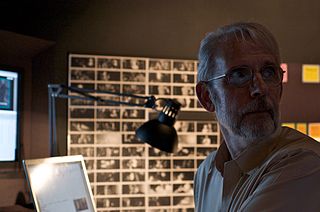
Walter Scott Murch is an American film editor, director, writer and sound designer. His work includes THX 1138, Apocalypse Now, The Godfather I, II, and III, American Graffiti, The Conversation, Ghost and The English Patient, with three Academy Award wins.
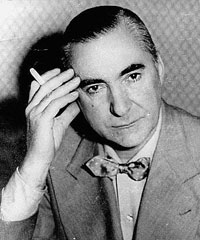
Curzio Malaparte was an Italian writer, filmmaker, war correspondent and diplomat. Malaparte is best known outside Italy due to his works Kaputt (1944) and The Skin (1949). The former is a semi-fictionalised account of the Eastern Front during the Second World War and the latter is an account focusing on morality in the immediate post-war period of Naples.

Casa Malaparte is a house on Punta Massullo, on the eastern side of the isle of Capri, Italy. It is considered to be one of the best examples of Italian modern and contemporary architecture.

Edda Ciano, Countess of Cortellazzo and Buccari was the daughter of Benito Mussolini, fascist Prime Minister of Italy from 1922 to 1943. Her husband, the fascist propagandist and Foreign Minister Galeazzo Ciano, was executed in January 1944 for his role in Mussolini's ouster. She strongly denied her involvement in the National Fascist Party regime after her father's execution by the Italian partisans in April 1945.

Don Guido Colonna, dei principi di Paliano, noble of Rome, patrician of Naples and Venice was an Italian aristocrat, diplomat and European Commissioner.

The Skin is a 1981 Italian war film directed by Liliana Cavani and starring Marcello Mastroianni, Burt Lancaster, Ken Marshall, Carlo Giuffrè and Claudia Cardinale from Curzio Malaparte's book The Skin. It was entered into the 1981 Cannes Film Festival.

The Flounder is a 1977 novel by the German writer Günter Grass. It is loosely based on the fairy tale "The Fisherman and His Wife".
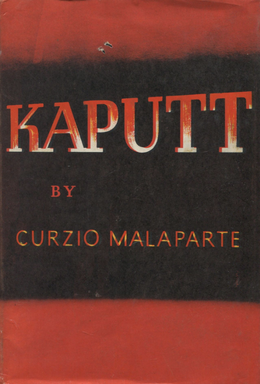
Kaputt is a 1944 autobiographical novel by the Italian writer Curzio Malaparte.
The Skin is a 1949 autobiographical novel by the Italian writer Curzio Malaparte.

Human Compatible: Artificial Intelligence and the Problem of Control is a 2019 non-fiction book by computer scientist Stuart J. Russell. It asserts that the risk to humanity from advanced artificial intelligence (AI) is a serious concern despite the uncertainty surrounding future progress in AI. It also proposes an approach to the AI control problem.

Harlem Shuffle is a 2021 novel by American novelist Colson Whitehead. It is the follow-up to Whitehead's 2019 novel The Nickel Boys, which earned him his second Pulitzer Prize for Fiction. It is a work of crime fiction and a family saga that takes place in Harlem between 1959 and 1964. It was published by Doubleday on September 14, 2021.
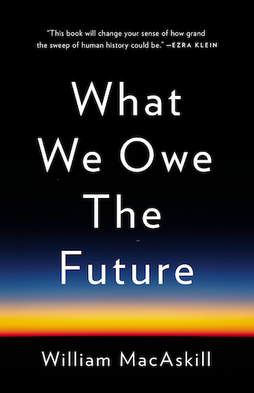
What We Owe the Future is a 2022 book by the Scottish philosopher and ethicist William MacAskill, an associate professor in philosophy at the University of Oxford. It advocates for effective altruism and the philosophy of longtermism, which MacAskill defines as "the idea that positively influencing the long-term future is a key moral priority of our time." His argument is based on the premises that future people count, there could be many of them, and we can make their lives better.

Coup d'État: The Technique of Revolution is a 1931 book by the Italian writer Curzio Malaparte.
Woman Like Me is a 1940 short story collection by the Italian writer Curzio Malaparte.

Malaparte: A Biography is a 2011 book by the Italian literary critic and historian Maurizio Serra. It is a biography of Curzio Malaparte and covers his various careers as soldier, writer, journalist, diplomat, trade unionist, politician and film director.

The Kremlin Ball is an unfinished novel by the Italian writer Curzio Malaparte, published posthumously in 1971.
The Volga Rises in Europe is a book of World War II journalism by the Italian writer Curzio Malaparte.
Jenny McPhee is an American novelist and translator. A 2020 Guggenheim Fellow, she has worked as a translator of Italian literature to English and wrote the novels The Center of Things (2001), No Ordinary Matter (2004), and A Man of No Moon (2007).
Malaparte. Morte come me is a 2016 novel by the Italian writer duo Monaldi & Sorti. It is a murder mystery set on Capri in 1939 with the writer Curzio Malaparte as main character.
References
- 1 2 "A People Set Apart". The New York Times . 25 October 1964. Retrieved 14 November 2023.
- ↑ "Those Cursed Tuscans". Kirkus Reviews . 1 September 1964. Retrieved 14 November 2023.
- ↑ "Books: A Clean, Well-Lighted Soul". Time . 30 October 1964. Retrieved 14 November 2023.